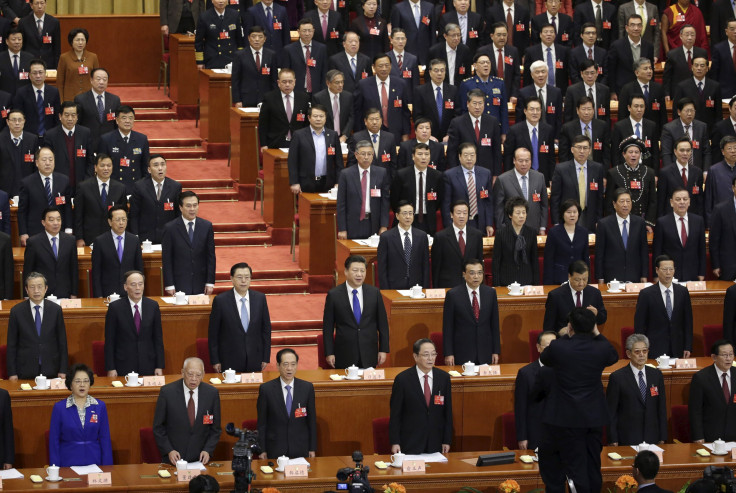Asian Stocks Mixed Amid Strong Yen, Ahead Of National People's Congress In China

Asian shares were mixed Friday morning after U.S. stock indexes gained for a third day. Japanese shares were lower as the yen held on to recent gains.
Japan's Nikkei 225 fell 0.2 percent as the yen held in the 113 to the U.S. dollar range. A strong yen — it was as weak as 121 to the dollar in January — makes the country's export-oriented companies less competitive. South Korea's KOSPI fell 0.3 percent. Singapore's STI jumped 2.2 percent. Australia's ASX 200 inched up 0.1 percent.
In the U.S., the Dow Jones Industrial Average rose 0.3 percent, the Standard & Poor's 500 0.4 percent and the Nasdaq Composite 0.09 percent. The indexes have been mostly rising since Feb. 11, the low for the year, as oil stabilized above $30 a barrel and amid a stream of positive U.S. economic news. They have made back half their losses for the year.
"U.S. data continues to shine, oil continues to firm and risk appetite is coming back into all aspects of the markets, although a note of dissonance is being struck by continued strength in the safe-haven assets of gold and the Japanese yen," CNBC reported Angus Nicholson, market analyst at IG, as saying.
Oil's fall from above $100 a barrel in mid-2014 has hurt stocks of energy companies and the many industries that supply them around the world. China's economic slowdown — which contributed to oil's fall — also raised concerns about global growth. China's National People's Congress convenes on Saturday and is expected to work on the country's next five-year economic plan, including addressing its so-called zombie companies. Investors may pause to consider what Chinese leaders say over the next few days.
“It would not surprise me to see traders finish the week on a cautious note ahead of China’s National People’s Congress this weekend and the U.S. jobs data tonight,” Bloomberg reported Ric Spooner, chief market analyst in Sydney at CMC Markets, as saying. “The question of where China’s authorities stand on balance between short-term economic stimulus and longer-term structural reform is a key issue for world markets.”
© Copyright IBTimes 2024. All rights reserved.











